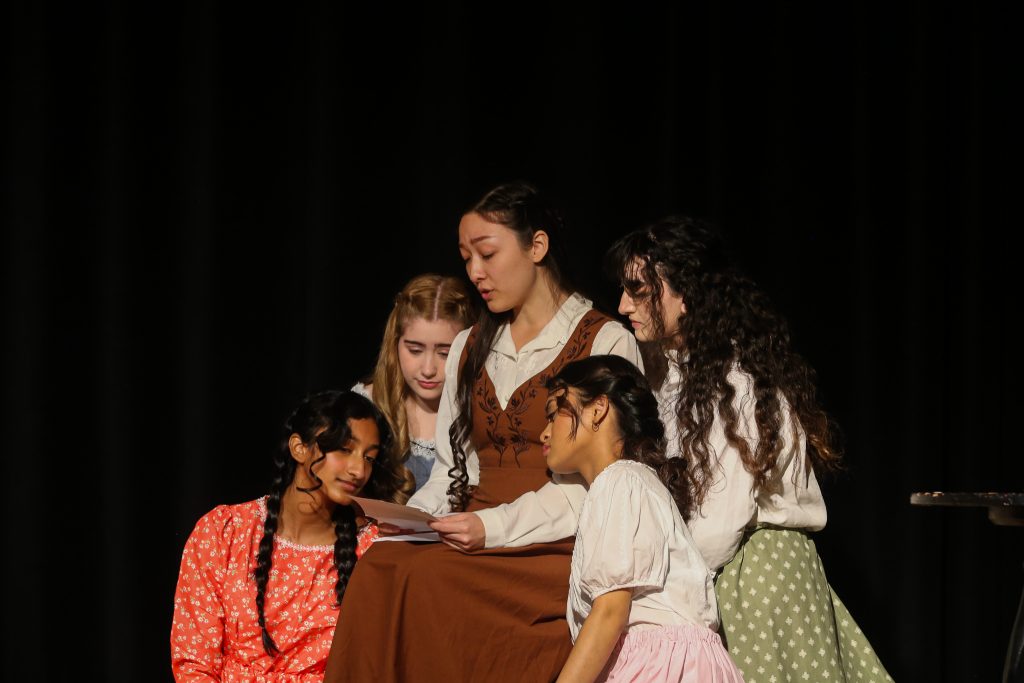The Dickinson Community Players put on a production of “Little Women” this Friday and Saturday in the Chenango Champlain Collegiate Center’s Multipurpose Room. The musical is an adaptation of Louisa May Alcott’s 1868 novel and premiered at Duke University in 2001.
The story follows Jo March, an ambitious young woman living in Massachusetts who dreams of making it as a big-time writer. Along with Jo, we follow her three sisters and mother. Meg, the eldest sister, is a romantic, proper girl who serves as a role model for the household. Amy, the second youngest, is stubborn and yearns for a better, more splendid life, while Beth, the youngest, is known for her pure heart, passion for the piano and being content to spend time with her loved ones. The four grow together from girls to women and help one another navigate the world around them.
Zachary Powell, the director, the players’ technical director and a junior majoring in chemistry, described his inspiration for directing the play.
“‘Little Women’ is my favorite musical of all time, and one of the things that stood out to me when I applied to direct was how homey and cozy every scene felt,” Powell wrote in an email. “I grew up about 20 [minutes] away from where [Louisa] May Alcott’s book was originally written, and the story reminds me a lot of home. Personally, joining DCP has really helped me feel at home here in Binghamton, and I’ve made a lot of my closest friends through this club. Being able to bring this show to our stage felt like a perfect match.”
Laurie, a character who is a close family friend of the sisters, offers comedic relief in many parts of an otherwise serious production. His happy-go-lucky nature lightens the mood after more heartwarming or upsetting scenes.
These moments are often set to music, making them all the more emotionally poignant. The girls’ mother delivers a beautiful ballad about missing her husband, who is off at war, with a rich vibrato. A number in the second act, titled “The Most Amazing Thing,” highlights the emotional conflict that often occurs between Jo and Amy and features well-executed harmonies.
Lyd Wyble, the production’s music director, the organization’s president and a senior majoring in mathematics, elaborated on the importance of the play’s score.
“The score for this show is phenomenal,” Wyble wrote in an email. “There are several little moments that emphasize the love the characters have for each other — when Jo writes about her family, for example, you can hear each sister’s motif play underneath her. When Professor Bhaer sings about missing Jo, a melody from her earlier song echoes him. I feel like it ties the story together perfectly, and compliments the sort of wholesome vibe we’ve tried to depict.”
The cast and crew came together to create a musical and theatrical experience that tugged at heartstrings and impressed with strong vocals and acting. The tale of the March sisters stands the test of time and was well reflected on the stage this weekend.



